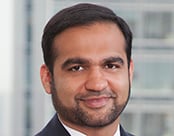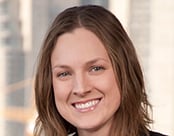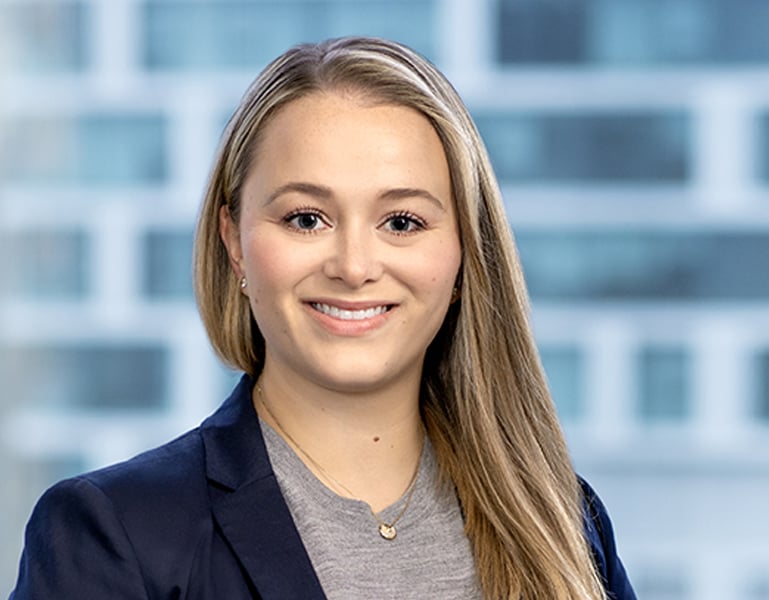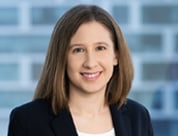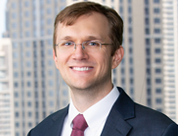Highlights from 2023 ALI-CLE Accountants’ Liability Conference
The annual ALI-CLE Accountants’ Liability Conference was held in Washington D.C. on May 4 and 5, 2023. The 34th annual iteration of this industry staple was co-hosted by Junaid A. Zubairi—Chair of Vedder Price’s Government Investigation and White Collar Defense Group—and Veronica Callahan of Arnold & Porter LLP, and featured speakers from across the industry, including regulators from the Securities and Exchange Commission (“SEC” or “Commission”) and the Public Company Accounting Oversight Board (“PCAOB”), in-house counsel, outside counsel, and consultants.
The conference began with a keynote address from Natasha Guinan, Chief Counsel in the SEC’s Office of the Chief Accountant. Drawing upon language from the U.S. Supreme Court’s decision in United States v. Arthur Young & Co., Ms. Guinan stated that independent auditors “assume[] a public responsibility” that transcends their relationship to their client when they certify public reports concerning a company’s financial condition.1 She noted that this responsibility demands that auditors maintain independence from their clients in both fact and appearance. She then discussed fulfillment of this “public responsibility” through three lenses: (i) compliance culture; (ii) auditor independence; and (iii) the need for public accounting firms to prioritize assurance practices.
First, Ms. Guinan emphasized the importance of “tone at the top” in supporting a broader culture of compliance within audit firms. She noted the SEC’s recent enforcement action in response to cheating by audit professionals on portions of the CPA exam and continuing professional education courses, and queried whether behavior like this could be emblematic of broader compliance culture issues within a firm. Ms. Guinan suggested that firms ask themselves whether their “tone at the top” is consistent with the role of a professional watchdog and whether it supports public accountants in maintaining independence.
Second, Ms. Guinan discussed auditor independence, which she described as the centerpiece of the Sarbanes-Oxley Act and the “basic tenant” upon which accountants assume public trust. She stated that both the SEC and PCAOB have renewed their focus on independence and that independence should be analyzed from the perspective of a reasonable investor as opposed to the perspective of an auditor. Ms. Guinan further noted that firms should not employ a “checklist” mentality based on the non-exhaustive list of circumstances in Rule 2-01(c)2 when making independence assessments.
Third, Ms. Guinan opined that there is a need for public accounting firms to prioritize their assurance practices in the face of business pressures. For example, she is of the view that private equity investment in accounting firms can imperil independence in both appearance and fact. Ms. Guinan believes that chasing business at the expense of assurance practice can undermine public trust in the accounting industry.
Ms. Guinan concluded by welcoming further collaboration between the SEC and PCAOB on enforcement matters, and by noting that disruptive change may be inevitable if the audit profession is unwilling to live up to its professional obligations.
In addition to Ms. Guinan’s remarks, the conference featured panel discussions regarding: the SEC’s perspectives on auditor liability, strategic considerations in regulatory investigations, Rule 102(e)3 proceedings, the PCAOB inspection and enforcement programs, and new and proposed accounting standards.
Key takeaways from these panel discussions include the following:
- The SEC and PCAOB both emphasized the role of auditors as gatekeepers who are critical to protecting both investors and, more broadly, capital markets. Both agencies noted the importance of a strong “tone at the top” that fosters a culture of compliance throughout accounting firms.
- The SEC has been increasing its focus on overseas accounting firms due to increased reliance on such firms by U.S. companies.
- Application of Rule 102(e) by the SEC may be informed by conduct both prior to and during an investigation. The SEC views integrity as an important factor in determining sanctions under Rule 102(e), and will apply Rule 102(e) to employees, such as Chief Financial Officers, even if they are not certified public accountants.
- The SEC encourages cooperation and considers it a large factor in the outcome of its investigations. Cooperation and remediation are built upon a basis of trust; if SEC staff do not trust an entity or individual under investigation, they are less likely to credit remedial efforts.
- The PCAOB doubled the public sanctions orders it imposed in 2022, when compared to 2021, and it sought its highest ever total amount of penalties. 2022 also represented the first year in which the PCAOB sanctioned firms for failing to reasonably supervise their personnel under Section 105(c)(6) of SOX.
- In 2022, the PCAOB prioritized quality control violations, violations resulting from altering documents in response to PCAOB inquiries, internal exam cheating, and failure to reasonably supervise accounting firm personnel. The PCAOB also brought roughly one third of its enforcement actions against entities in foreign countries, including for the first time in mainland China.
- The PCAOB’s strategic plan for 2022–2026 has four pillars: (i) modernizing standards, (ii) enhancing inspections, (iii) strengthening enforcement, and (iv) strengthening overall organizational effectiveness.
- New and proposed accounting standards continue to focus on Environmental, Social, and Governance (“ESG”)-related advisory services and fund offerings, including whether funds are operating in a manner consistent with their disclosures, whether ESG products are appropriately labeled, and whether recommendations of ESG products are made in investors’ best interests.
(1) 465 U.S. 805, 817 (1984) (emphasis in original).
(2) 17 CFR § 210.2-01(c).
(3) 17 CFR § 201.102(e).
Vedder Thinking | Articles Highlights from 2023 ALI-CLE Accountants’ Liability Conference
Article
May 15, 2023
The annual ALI-CLE Accountants’ Liability Conference was held in Washington D.C. on May 4 and 5, 2023. The 34th annual iteration of this industry staple was co-hosted by Junaid A. Zubairi—Chair of Vedder Price’s Government Investigation and White Collar Defense Group—and Veronica Callahan of Arnold & Porter LLP, and featured speakers from across the industry, including regulators from the Securities and Exchange Commission (“SEC” or “Commission”) and the Public Company Accounting Oversight Board (“PCAOB”), in-house counsel, outside counsel, and consultants.
The conference began with a keynote address from Natasha Guinan, Chief Counsel in the SEC’s Office of the Chief Accountant. Drawing upon language from the U.S. Supreme Court’s decision in United States v. Arthur Young & Co., Ms. Guinan stated that independent auditors “assume[] a public responsibility” that transcends their relationship to their client when they certify public reports concerning a company’s financial condition.1 She noted that this responsibility demands that auditors maintain independence from their clients in both fact and appearance. She then discussed fulfillment of this “public responsibility” through three lenses: (i) compliance culture; (ii) auditor independence; and (iii) the need for public accounting firms to prioritize assurance practices.
First, Ms. Guinan emphasized the importance of “tone at the top” in supporting a broader culture of compliance within audit firms. She noted the SEC’s recent enforcement action in response to cheating by audit professionals on portions of the CPA exam and continuing professional education courses, and queried whether behavior like this could be emblematic of broader compliance culture issues within a firm. Ms. Guinan suggested that firms ask themselves whether their “tone at the top” is consistent with the role of a professional watchdog and whether it supports public accountants in maintaining independence.
Second, Ms. Guinan discussed auditor independence, which she described as the centerpiece of the Sarbanes-Oxley Act and the “basic tenant” upon which accountants assume public trust. She stated that both the SEC and PCAOB have renewed their focus on independence and that independence should be analyzed from the perspective of a reasonable investor as opposed to the perspective of an auditor. Ms. Guinan further noted that firms should not employ a “checklist” mentality based on the non-exhaustive list of circumstances in Rule 2-01(c)2 when making independence assessments.
Third, Ms. Guinan opined that there is a need for public accounting firms to prioritize their assurance practices in the face of business pressures. For example, she is of the view that private equity investment in accounting firms can imperil independence in both appearance and fact. Ms. Guinan believes that chasing business at the expense of assurance practice can undermine public trust in the accounting industry.
Ms. Guinan concluded by welcoming further collaboration between the SEC and PCAOB on enforcement matters, and by noting that disruptive change may be inevitable if the audit profession is unwilling to live up to its professional obligations.
In addition to Ms. Guinan’s remarks, the conference featured panel discussions regarding: the SEC’s perspectives on auditor liability, strategic considerations in regulatory investigations, Rule 102(e)3 proceedings, the PCAOB inspection and enforcement programs, and new and proposed accounting standards.
Key takeaways from these panel discussions include the following:
- The SEC and PCAOB both emphasized the role of auditors as gatekeepers who are critical to protecting both investors and, more broadly, capital markets. Both agencies noted the importance of a strong “tone at the top” that fosters a culture of compliance throughout accounting firms.
- The SEC has been increasing its focus on overseas accounting firms due to increased reliance on such firms by U.S. companies.
- Application of Rule 102(e) by the SEC may be informed by conduct both prior to and during an investigation. The SEC views integrity as an important factor in determining sanctions under Rule 102(e), and will apply Rule 102(e) to employees, such as Chief Financial Officers, even if they are not certified public accountants.
- The SEC encourages cooperation and considers it a large factor in the outcome of its investigations. Cooperation and remediation are built upon a basis of trust; if SEC staff do not trust an entity or individual under investigation, they are less likely to credit remedial efforts.
- The PCAOB doubled the public sanctions orders it imposed in 2022, when compared to 2021, and it sought its highest ever total amount of penalties. 2022 also represented the first year in which the PCAOB sanctioned firms for failing to reasonably supervise their personnel under Section 105(c)(6) of SOX.
- In 2022, the PCAOB prioritized quality control violations, violations resulting from altering documents in response to PCAOB inquiries, internal exam cheating, and failure to reasonably supervise accounting firm personnel. The PCAOB also brought roughly one third of its enforcement actions against entities in foreign countries, including for the first time in mainland China.
- The PCAOB’s strategic plan for 2022–2026 has four pillars: (i) modernizing standards, (ii) enhancing inspections, (iii) strengthening enforcement, and (iv) strengthening overall organizational effectiveness.
- New and proposed accounting standards continue to focus on Environmental, Social, and Governance (“ESG”)-related advisory services and fund offerings, including whether funds are operating in a manner consistent with their disclosures, whether ESG products are appropriately labeled, and whether recommendations of ESG products are made in investors’ best interests.
(1) 465 U.S. 805, 817 (1984) (emphasis in original).
(2) 17 CFR § 210.2-01(c).
(3) 17 CFR § 201.102(e).
